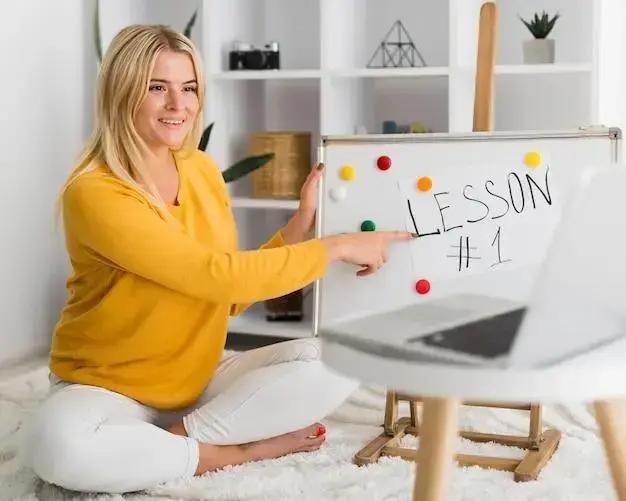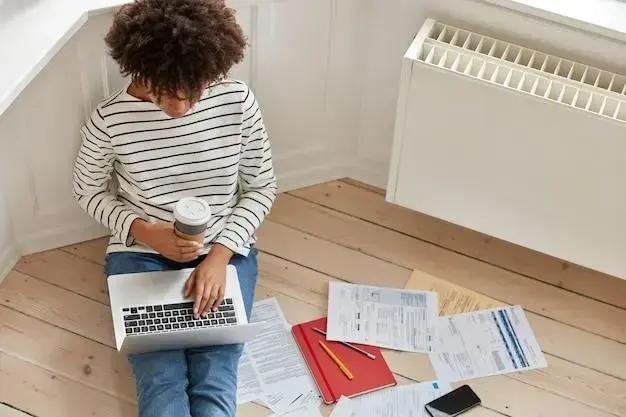Are you struggling to make progress on the piano? You’re not alone! Many aspiring pianists find it challenging to practice effectively. But don’t worry, there are proven techniques that can help you improve your skills and enjoy the process. In this post, we’ll explore some effective piano practice techniques that can transform your playing and make your practice sessions more productive. Let’s dive in!
1. Understanding the Importance of Consistent Practice
Understanding the Importance of Consistent Practice
Why Consistency Matters
When it comes to learning the piano, consistency is key. Just like any skill, regular practice helps reinforce what you’ve learned. Imagine trying to build a muscle—if you only hit the gym once in a while, you won’t see much progress. The same goes for your piano skills!
Building Muscle Memory
Consistent practice helps develop muscle memory, which is crucial for playing smoothly. When you repeat a piece or a technique regularly, your fingers start to remember the movements. This means less conscious effort is needed, allowing you to focus on expression and dynamics.
Creating a Routine
Establishing a practice routine can help you stay on track. Set aside a specific time each day for your piano practice. Even if it’s just 20 minutes, make it a habit. Over time, you’ll find that this routine becomes a natural part of your day.
Tracking Progress
Another benefit of consistent practice is the ability to track your progress. When you practice regularly, you can look back and see how far you’ve come. This can be incredibly motivating! Consider keeping a practice journal to note what you worked on and any improvements you noticed.
Overcoming Challenges
We all face challenges when learning an instrument. Consistent practice helps you tackle these hurdles head-on. The more you practice, the more confident you become in your abilities. Plus, regular practice helps you identify areas that need improvement, so you can focus your efforts effectively.
In summary, consistent practice is essential for mastering the piano. It builds muscle memory, creates a routine, allows you to track progress, and helps you overcome challenges. So, make it a priority to practice regularly, and watch your skills soar!
2. Setting Realistic Goals for Your Piano Journey
Setting goals is like having a roadmap for your piano journey. Without clear objectives, it’s easy to feel lost or overwhelmed. Think of your goals as signposts that guide you along the way, helping you stay focused and motivated.
The Importance of Goal Setting
One effective way to set goals is by using the SMART criteria. This means your goals should be Specific, Measurable, Achievable, Relevant, and Time-bound. For example, instead of saying, “I want to get better at piano,” you could say, “I want to learn to play ‘Clair de Lune’ by the end of the month.” This gives you a clear target to aim for!
SMART Goals
Big goals can feel daunting, so it’s helpful to break them down into smaller, manageable steps. If your goal is to master a complex piece, divide it into sections. Focus on learning a few measures at a time, and gradually piece them together. This makes the process less overwhelming and allows you to celebrate small victories along the way.
Breaking It Down
While it’s important to set goals, it’s equally important to stay flexible. Life can get busy, and sometimes you might need to adjust your goals based on your schedule or progress. Don’t be too hard on yourself if you need to extend a deadline or change your focus. The key is to keep moving forward, even if it’s at a different pace.
Stay Flexible
Don’t forget to celebrate your achievements, no matter how small! When you reach a goal, take a moment to acknowledge your hard work. This boosts your motivation and reminds you that progress is being made. Whether it’s playing a piece perfectly or mastering a new technique, every achievement counts!
Celebrate Achievements
In conclusion, setting realistic goals is essential for your piano journey. By using the SMART criteria, breaking down larger goals, staying flexible, and celebrating your achievements, you’ll create a fulfilling and motivating practice experience. So, grab your pencil and start mapping out your piano goals today!
3. The Role of Warm-Ups in Effective Practice
Just like athletes need to warm up before a game, pianists benefit greatly from warm-up exercises. Warming up prepares your fingers and mind for the practice session ahead. It helps prevent injuries and ensures that you’re ready to tackle more challenging pieces.
Why Warm-Ups Matter
Warm-ups get the blood flowing to your fingers, making them more agile and responsive. Think of it as getting your engine running before hitting the road. A few minutes of simple scales or finger exercises can make a world of difference in your playing.
Getting the Blood Flowing
There are various warm-up exercises you can incorporate into your routine. Here are a few popular ones:
- Scales: Practicing major and minor scales helps improve finger strength and coordination.
- Arpeggios: These exercises enhance your ability to play broken chords smoothly.
- Hanon Exercises: The Hanon series focuses on finger independence and agility, perfect for warming up.
- Chord Progressions: Playing through common chord progressions can help with hand coordination and transitioning between chords.
Types of Warm-Up Exercises
Incorporating warm-ups into your practice routine doesn’t have to be time-consuming. Aim for about 10-15 minutes at the start of each session. This sets a positive tone for your practice and helps you ease into more complex pieces.
Establishing a Routine
As you warm up, pay attention to how your fingers feel. If something doesn’t feel right, take a moment to adjust your technique. Warm-ups are not just about playing; they’re also about tuning into your body and making sure you’re in the best shape to play.
Listening and Adjusting
In summary, warm-ups play a crucial role in effective piano practice. They prepare your fingers, enhance your skills, and help prevent injuries. By establishing a warm-up routine, you’ll set yourself up for a successful and enjoyable practice session. So, don’t skip those warm-ups—your fingers will thank you!
4. Utilizing Technology for Enhanced Learning
The Digital Age of Piano Learning
In today’s digital world, technology offers incredible resources for piano learners. From apps to online tutorials, there’s a wealth of information at your fingertips. Embracing these tools can enhance your practice and make learning more engaging.
Apps for Practice
There are numerous apps designed specifically for piano practice. Some popular ones include:
- Simply Piano: This app provides interactive lessons and feedback as you play along with your device.
- Piano Maestro: Great for beginners, it gamifies learning and helps you progress through fun challenges.
- Yousician: Offers a variety of songs and exercises, providing real-time feedback on your playing.
Online Tutorials and Courses
Don’t underestimate the power of online tutorials! YouTube is a treasure trove of piano lessons, covering everything from basic techniques to advanced pieces. Many professional pianists share their tips and tricks, making it easy to learn from the best. Additionally, platforms like MasterClass and Coursera offer structured courses that can guide you through your learning journey.
Recording Yourself
One of the best ways to track your progress is by recording your practice sessions. Use your smartphone or computer to capture your playing. Listening back allows you to identify areas for improvement and celebrate your successes. It’s a fantastic way to see how far you’ve come!
Using MIDI Technology
If you have a digital piano, consider using MIDI technology. This allows you to connect your piano to a computer or tablet, enabling you to use software that can analyze your playing. Programs like GarageBand or Sibelius can help you compose, arrange, and even create backing tracks for your practice.
In conclusion, utilizing technology can significantly enhance your piano learning experience. From apps and online courses to recording your practice and using MIDI, these tools can make your journey more enjoyable and effective. So, don’t hesitate to explore the digital resources available to you—your piano skills will thank you!
5. Tips for Staying Motivated During Practice
Staying motivated while practicing the piano can sometimes feel like an uphill battle. One of the best ways to keep your motivation high is to remember why you started playing in the first place. Whether it’s the joy of creating music, the desire to perform, or simply a love for the instrument, keeping your passion in mind can reignite your enthusiasm.
Finding Your Why
As we discussed earlier, setting realistic goals is crucial. But it’s also important to break those goals down into smaller, achievable tasks. Instead of aiming to master an entire piece, focus on perfecting a few measures at a time. Celebrating these small victories can give you a sense of accomplishment and keep you motivated to continue.
Set Small, Achievable Goals
Doing the same practice routine day in and day out can lead to boredom. To keep things fresh, mix up your practice sessions! Try learning a new genre, experimenting with improvisation, or playing along with your favorite songs. Variety not only keeps your practice interesting but also helps you develop a broader skill set.
Mix It Up
Connecting with other pianists can provide a significant boost to your motivation. Whether it’s joining a local music group, participating in online forums, or following piano influencers on social media, being part of a community can inspire you. Sharing your progress and learning from others can reignite your passion for playing.
Join a Community
Incorporating rewards into your practice routine can also help maintain motivation. Set milestones for yourself, and when you reach them, treat yourself to something special. It could be a new piece of sheet music, a fun outing, or even just a break to enjoy your favorite snack. Rewards can make the hard work feel worthwhile!
Reward Yourself
Lastly, remember to stay positive! It’s normal to have off days where things don’t go as planned. Instead of getting frustrated, try to view these moments as part of the learning process. Focus on the progress you’ve made rather than the challenges you face. A positive mindset can make all the difference in your motivation levels.
Stay Positive
In summary, staying motivated during piano practice is essential for growth and enjoyment. By finding your why, setting small goals, mixing up your routine, joining a community, rewarding yourself, and maintaining a positive attitude, you’ll create a fulfilling practice experience. So, keep that passion alive and enjoy every moment at the piano!
In conclusion, mastering the piano is a journey that requires dedication, consistency, and the right techniques.
By understanding the importance of consistent practice, setting realistic goals, incorporating warm-ups, utilizing technology, and staying motivated, you can create a fulfilling and effective practice routine.
Remember, every pianist’s journey is unique, so find what works best for you and enjoy the process.
With patience and perseverance, you’ll see your skills flourish and your love for music deepen.
So, keep playing, keep learning, and most importantly, have fun at the piano!
Frequently Asked Questions about Effective Piano Practice Techniques
Why is consistent practice important for piano players?
Consistent practice helps build muscle memory, improves finger agility, and allows you to track your progress effectively.
How can I set realistic goals for my piano practice?
Use the SMART criteria to set specific, measurable, achievable, relevant, and time-bound goals that guide your practice.
What are some effective warm-up exercises for pianists?
Effective warm-up exercises include scales, arpeggios, Hanon exercises, and chord progressions to prepare your fingers for practice.
How can technology enhance my piano learning experience?
Technology offers apps, online tutorials, and recording tools that provide interactive learning, feedback, and resources to improve your skills.
What are some tips for staying motivated during practice?
To stay motivated, find your why, set small goals, mix up your routine, join a community, reward yourself, and maintain a positive mindset.
How can I track my progress while learning the piano?
You can track your progress by keeping a practice journal, recording your sessions, and celebrating small achievements along the way.





